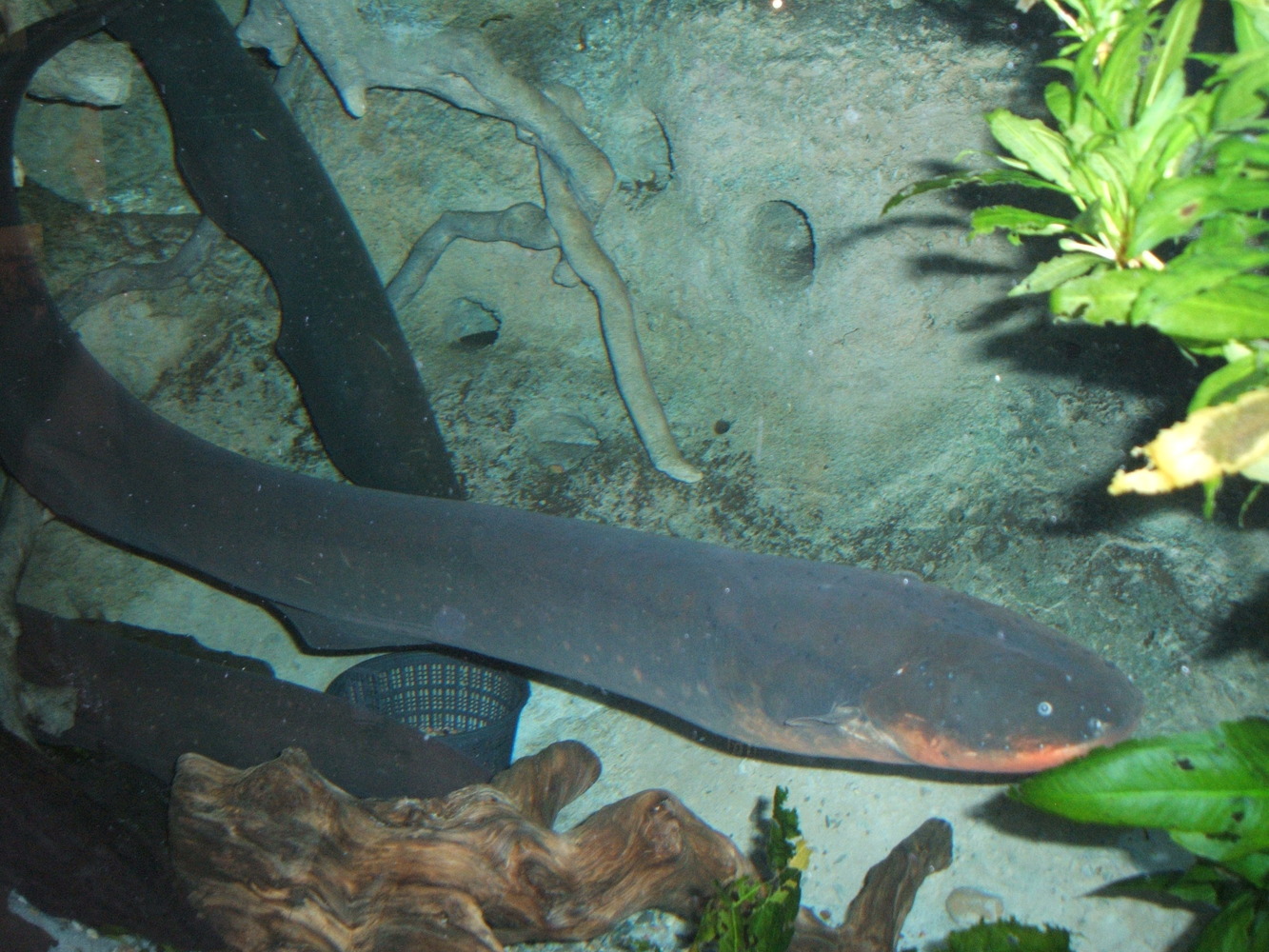Electric eels use remote control to force their prey to disclose themselves, new research has shown.
Electric eels use high-voltage discharges to stun their prey.  The volley of electrical impulses, produced by specialised cells called electrocytes that make up the bulk of the eel's body, paralyses the nerves and muscles of nearby fish, turning them into sitting ducks.
The volley of electrical impulses, produced by specialised cells called electrocytes that make up the bulk of the eel's body, paralyses the nerves and muscles of nearby fish, turning them into sitting ducks.
Now a careful study published this week in Science by Vanderbilt University researcher Kenneth Catania has shown that these eels are even craftier than first thought.
Rather than resorting to an electrical blunderbus approach to hunting, the eels also use their electrical discharges as a "remote control" device. Pairs or occasionally groups of three electrical pulses have the effect of making the muscles of a hidden prey species contract spasmodically, giving away its location.
Upon sensing the movement, the eel immediately delivers the full stun shock and then moves in for the kill.
Catania made the discovery by placing "pithed" fish, from which the brain had been removed but which were otherwise alive, in a tank with an electric eel but behind a barrier so the eel could see them, but not touch them.
The pithed fish were tethered at the head and tail to a device to measure the force of any muscle contractions they made, while other electrodes picked up the discharges issuing from the eel.
The short two- or three- pulse shocks the eel delivered triggered the tethered fish to jerk, alerting the eel to its presence so it immediately activated its stun shock sequence.
The frequency of the electrical discharges the eel uses are also perfectly timed to maximally stimulate the motor nerves that control muscles in order to achieve this effect.
According to Kenneth Catania, "this study reveals that the electric eel has evolved a precise remote control mechanism for prey capture, one that takes advantage of an organism's own nervous system."
- Previous Knocking herpes on the head
- Next Brain worm found in British man










Comments
Add a comment